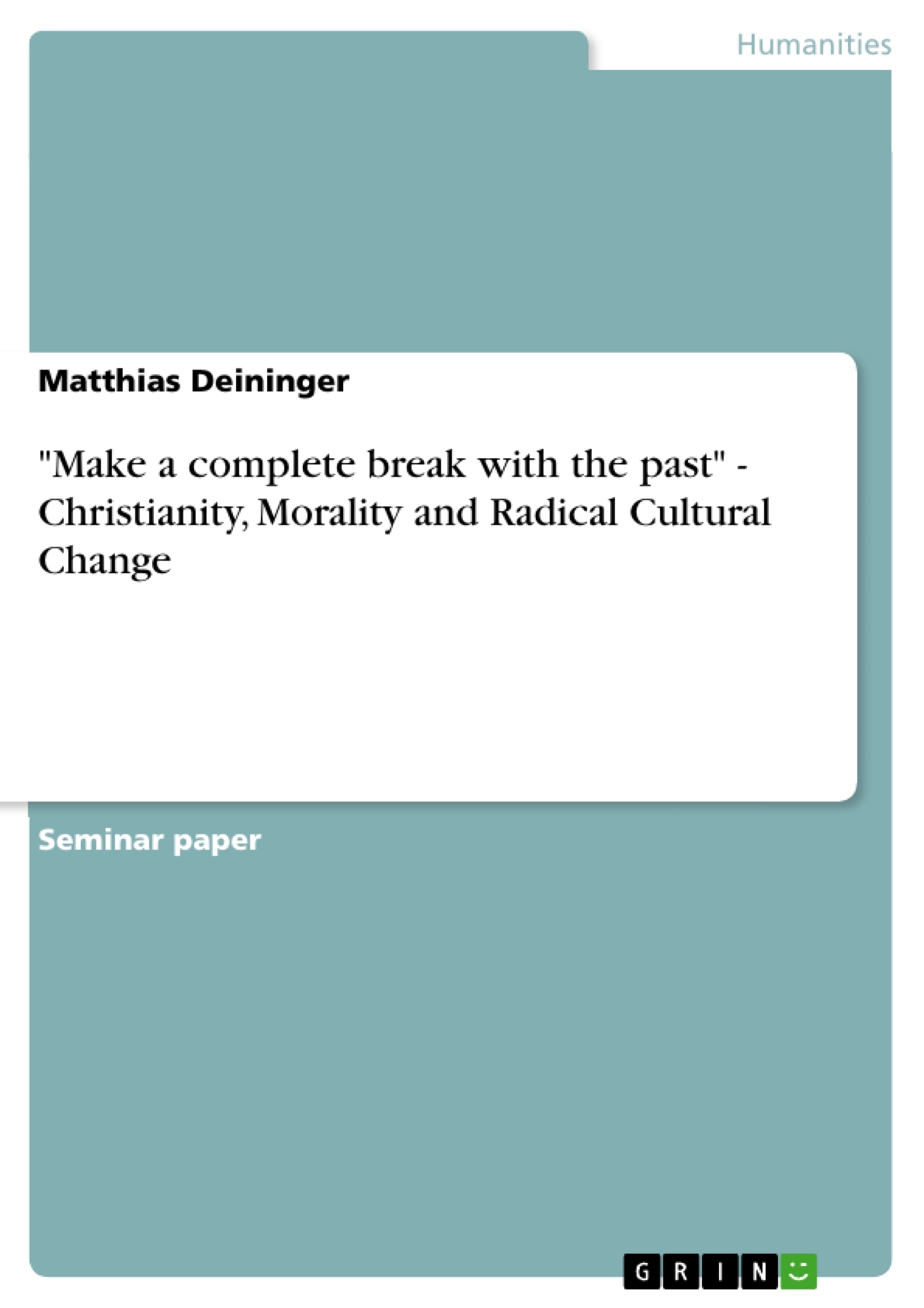In this paper, I take up Joel Robbins′3 anthropological approach towards a general theory on cultural change. For this I will focus on the key issues and main concepts of his work, which he mainly derives from Marshall Sahlins and Louis Dumont4. Robbins argues that we should replace our traditional models of syncretism with a model based on an understanding of the roles that values play in structuring the relations between cultural elements. Such a model allows for the analysis of both new and old elements in the cultures of converts, but does not assume that older elements are always more fundamental. This approach takes seriously, how indigenous people comprehend and construct their cultural and historical identities themselves and attributes an active role to indigenous societies in the process of change. Further, it recognizes that cultural transformation processes can lead to radical discontinuities within a cultural system and thus can create ―an entirely new culture in its own terms‖ (Robbins 2004a.: 10).
Inhaltsverzeichnis (Table of Contents)
- Introduction
- The Urapmin- a case study
- Theorizing cultural change
- Robbins' reading of Sahlins and Dumont
- Develop-man versus Development
- The concept of humiliation
- Conclusion
Zielsetzung und Themenschwerpunkte (Objectives and Key Themes)
This paper aims to provide an anthropological understanding of radical cultural change, focusing on Joel Robbins' theoretical framework derived from Marshall Sahlins and Louis Dumont.
- The role of values in structuring cultural relations
- The experience of humiliation as a catalyst for cultural change
- The concept of "develop-man" and its influence on cultural transformation
- The active role of indigenous societies in shaping their own cultural identities
- The potential for radical discontinuity in cultural systems
Zusammenfassung der Kapitel (Chapter Summaries)
- Introduction: This chapter introduces the context of Christianity's widespread adoption in Papua New Guinea, particularly focusing on the Urapmin people. It highlights the need for a comprehensive theoretical framework to understand cultural transformation processes.
- The Urapmin- a case study: This chapter provides a brief summary of Robbins' ethnographical work on the Urapmin people, focusing on their pre-colonial history, colonial experiences, and the impact of Christianization. It explores how colonial policies and missionary activities led to the Urapmin's feeling of humiliation and their desire for change.
Schlüsselwörter (Keywords)
This paper explores the concepts of cultural change, radical discontinuity, humiliation, develop-man, and value systems in relation to Christianity, indigenous societies, and the process of cultural transformation. The Urapmin case study serves as an illustrative example of how these concepts interrelate in a real-world context.
Frequently Asked Questions
What is radical cultural change according to Joel Robbins?
It is a process where a cultural system undergoes significant discontinuity, potentially creating an entirely new culture based on new values, rather than just blending old and new elements.
Who are the Urapmin people?
The Urapmin are a community in Papua New Guinea who underwent a rapid and total conversion to Christianity, serving as a key case study for Robbins' theories on cultural transformation.
How does "humiliation" trigger cultural change?
In colonial or missionary contexts, indigenous people may feel humiliated by their perceived "backwardness," leading to a radical desire to break with the past and adopt a new system like Christianity.
What is the concept of "Develop-man"?
It refers to the indigenous pursuit of ritual or spiritual advancement and personal growth, which is often contrasted with Western economic "development."
Why is Robbins critical of traditional models of syncretism?
He argues that syncretism models often assume older cultural elements are always fundamental, failing to recognize when societies actively choose to replace their core values.
- Citation du texte
- Matthias Deininger (Auteur), 2012, "Make a complete break with the past" - Christianity, Morality and Radical Cultural Change, Munich, GRIN Verlag, https://www.grin.com/document/202799



